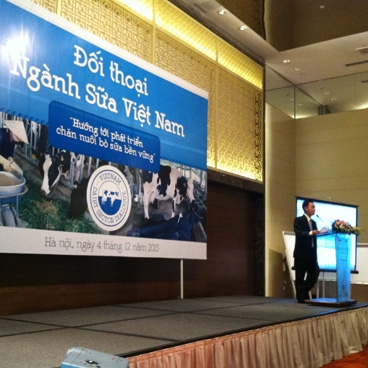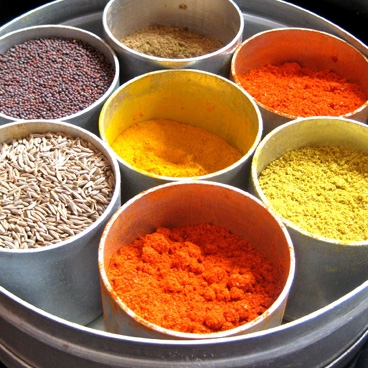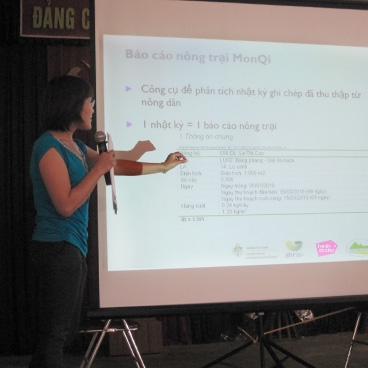Urban consumers in North Vietnam encounter problems buying guaranteed safe vegetables especially during the hot and humid summer period in North Vietnam which starts in April and lasts until September.
Background
Temperatures and humidity are too high in the Red River Delta plains to produce the required range of vegetables and there is limited supply of vegetables from Dalat from April to September. Therefore markets in North Vietnam are flooded with vegetables imported from China. This concerns consumers and government regulators due to questionable food safety standards.
The rapid urbanization in Northern Vietnam combined with consumer demand for high quality and guaranteed safe vegetables, the long distance from Dalat to Hanoi (1,400 km) and the influx of Chinese vegetable imports, provides an opportunity to develop regional supply of safe vegetables for urban markets in North Vietnam.
Approach
Since 2010 Fresh Studio has been cooperating with METRO Cash & Carry Vietnam in North Vietnam to:
- Provide small holder vegetable farmers with a direct linkage to modern trade
- Diminish the negative environmental impacts of the current unsustainable horticulture production systems
- Offer urban consumers guaranteed high quality and safe vegetables for a wide range of vegetables in large volumes
To develop year round supply of guaranteed high quality and safe vegetables from North Vietnam, Fresh Studio clustered small holder vegetable farmers in the lowlands of the Red River Delta, as well as the poorer and more remote farmers located in the mountains in the North. Using the climatic advantage of the cooler mountains in North Vietnam, a regional solution has been developed to supplement the vegetable supply from the Red River Delta during the summer period. This resulted in the possibility for METRO and other retailers to source high quality and safe vegetables year round from North Vietnam.
Outcome
At the end of the project, 6 farmer groups were developed, representing a total of 113 farmers across 3 sourcing areas: Dong Anh, Hai Duong and Moc Chau. All farmer groups achieved government food safety certification and were trained in the METRO Requirement standard. In addition to government certification 46 farmers received METRO Requirement certification. Out of the 36 vegetables selected as project assortment, 26 are now METRO Requirement certified.
Supply chain before intervention
- Limited cooperation within the chain
- Limited knowledge exchange between actors
Value chain after intervention
- Good cooperation within the chain
- Extensive knowledge exchange between actors
Recent developments in this project:















